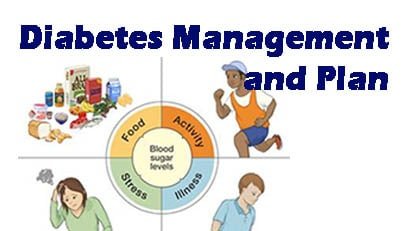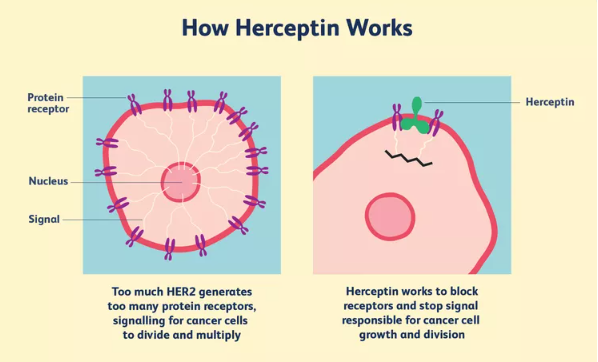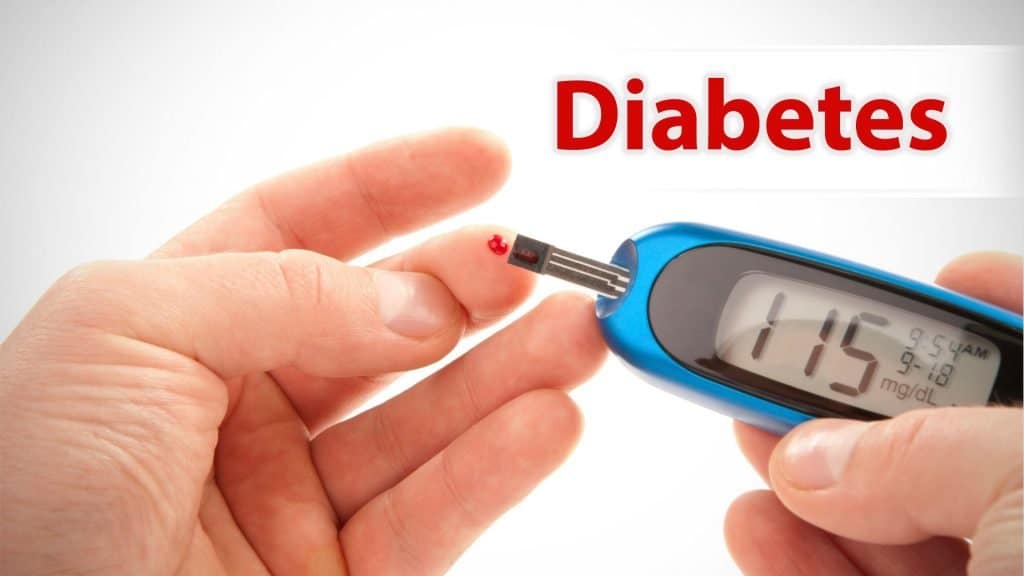Before going to Diabetes Management and Plan we should be aware of and focus on the prevention and management of type 2 diabetes. let’s have a brief knowledge on Diabetes

Diabetes and what you need to know
Diabetes is a group of metabolic diseases characterized by an elevated blood glucose level. It can be associated with the dysfunction of multiple organs including the kidneys, eyes, nerves, heart, and blood vessels.
Metabolic Diabetes can be classified into the following types:
- Type 1 Diabetes Mellitus – Also known as juvenile diabetes mellitus and is insulin-dependent.
- Type 2 Diabetes Mellitus– Also known as non-insulin-dependent diabetes mellitus.
- Gestational diabetes mellitus– This is the form of diabetes that occurs when women without any previous history of diabetes develop high blood sugar level during their pregnancy.
- Prediabetes– When the blood sugar level is higher than normal but not enough to be called as diabetes. Although you are at high risk of being diabetic if not controlled.
Diabetes is a highly preventable despite its complications. The management of diabetes involves choosing a healthier lifestyle that includes a healthy diet, exercise, and physical activity, medication.
Diabetes Management and Plan
Diabetes management and Plan are simply explained below. Regarding the cost of managing diabetes can be different. Nowadays in easy smart life you can have diabetes data management software for the institute for effective diabetes management and plan. Here we are listing some best practice diabetes management you should know about. Dietary Management and Exercise are one of the major key in diabetes management and plan. Some diabetes management centre are being made to do these.
1. Dietary management:
We often tend to ignore the fact that what we eat shows in our body. Whatever food we eat, our digestive system breaks it down and turns it into glucose. That very glucose is regulated by insulin (a hormone produced by the pancreas). If the body fails to produce the hormone or if the hormone fails to regulate glucose then it results in diabetes. So, diabetic food management is one of the key for the diabetes management plan to reduce blood sugar levels effectively.
Diets rich in carbohydrates, excess sugar intake significantly increases the risk of diabetes. Therefore, a balanced diet must be consumed in order to stay healthy and reduce the risk of being diabetic.
A diet rich in fibers, protein, healthy fats must be followed instead. Avoiding sugar, sweets, chocolates, junk foods and processed foods, sugary sodas and drinks is a must. Consuming foods that are rich in anti-oxidants has also been proven to be beneficial.
2. Exercise and physical activity:
Exercise and physical activity combined has proven to be beneficial for people with diabetes as well as a healthy population.
Why is exercise important?
- Exercise training produces benefits in glucose control in our body.
- Exercise increases fat metabolism.
- Exercises including flexibility, strength, and balance training help prevent the risk of falls in the long run.
- Exercises help reduce the symptoms of depression and hence improve the quality of life.
- Exercises help reduce the risk of developing other comorbidities.

Special considerations while performing exercises:
- Monitor the blood glucose level before and after the exercise.
- Always perform exercise under supervision.
- The person performing the exercise should always carry an energy bar to prevent hypoglycemia.
- High-intensity exercises must be avoided as it increases arterial pressure.
- One must wear comfortable clothing and footwear.
- Hydrate yourself before and after exercise.
Know simple core exercise that prevent lower back Pain
TELL TELL signs to STOP the exercise:
If any of the sings show during the exercise, it could be one or more you need to stop the exercise. Take some rest, hydrate yourself, check your vitals. Some of the “TELL TELL Signs” during the exercise are listed below. If these signs are seen you should stop exercises
- Shakiness
- Weakness
- Abnormal sweating
- Anxiety
- Nervousness
- Tingling of mouth and fingers
- Increased thirst
Common EXERCISES for Diabetes management and plan
- Aerobic training:
This type of training involves your larger muscle groups. The more the larger muscle group is involved the better.
This must be performed 3-7/week for 20-60mins/day.

- Resistance training:
This type of training involves multiple joint exercises.
This type of exercise must be performed 2-3 days/week for 20-25mins/day.
- Physical activity:
This involves our daily activities. Brisk walking for about 45minutes- 1hour has been proven effective recently. Take the stairs rather than taking the elevator. Doing activities that you like which involves physical exertion may help reduce the risks of diabetes.
KEYNOTE:
Everyone needs to opt for a healthier lifestyle. Being more physically active has proven to be beneficial. Healthier diet, exercising regularly, and keeping yourself physically active is the key to a healthier living. Also, keep in mind to not overdo anything as it may cause more harm than benefit.
References:
- Tatsuya Hayashi, Jorgen F. P. Wojtaszewski, Laurie J. Goodyear. Exercise regulation of glucose transport in skeletal muscle. American Journal of Physiology-Endocrinology and Metabolism.1 December 1997 Vol. 273 no. 6, E1039-E1051 DOI:
- Roy D, Marette A. Exercise induces the translocation of GLUT4 to transverse tubules from an intracellular pool in rat skeletal muscle. Biochem Biophys Res Commun.1996 Jun 5;223(1):147-52
- ACSM’s Guideline for Exercise Testing and Prescription; 8th Edition
Author: Diva KC, 14th May, 2020, physiotherapist














